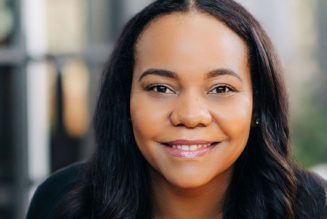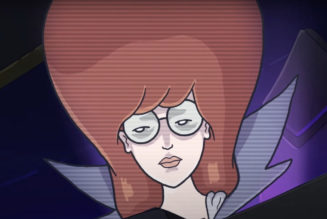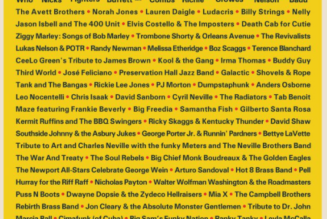Michael Gudinski always has something extra up his sleeve.
When the 360-degree company became a fashionable term, Gudinski had his own spin. Mushroom Group, his independent music empire, was a “365” company, reflecting the number of days it operated in a regular year.
Launched in 1973, Mushroom Group today spans more than two-dozen companies and brands from Frontier Touring, one of the world’s leading independent promoters, to The Harbour Agency, labels I Oh You, Liberation and Bloodlines, Mushroom Music Publishing, neighboring rights operation Good Neighbour, and the new addition, Reclusive Records.
The pandemic has caused income to dry up for so many entertainment companies, particularly those exposed to concerts and touring. Mushroom Group is built on a bedrock of live music.
Gudinski didn’t waste time. The Melbourne-based entrepreneur pivoted, hit the phones and turned his energies to the small screen.
First up, Gudinski curated Music From The Home Front, a virtual concert on ANZAC Day, featuring more than 50 music stars from both sides of the Tasman.
The broadcast on the free-to-air Nine Network was a ratings hit, with 1.4 million TV viewers. And its companion album would rule the national albums chart for three non-consecutive weeks, with 100% of its profits pumped into music industry charity Support Act (the triple-vinyl release via Bloodlines propelled the all-star set back to No. 1 in September).
Next, Gudinski turned his attention to the six-part series The State Of Music, which streamed live on YouTube, Facebook and Victoria Together, the just-launched platform of the Victoria Government, which underwrote the project.
A third project was realized when season one of The Sound kicked off late July on the Australian Broadcasting Corporation. The brainchild of Gudinski, the music TV format was produced by Mushroom Vision and featured appearances from a lengthy list of Australia’s brightest young talent and biggest names, including Tones And I, Keith Urban, Paul Kelly, Kylie Minogue, Amy Shark and many more.
Behind the scenes, Melburnians struggled with a second lock-down as COVID-19 cases spiked, a bitter blow for a city often touted as Australia’s “capital of culture.”
Music, as it so often does, came to the rescue.
Building new channels for Australian artists during the health crisis has been “such a great distraction to me,” Gudinski tells Billboard. “I’ve honestly never worked so hard. It’s distracted me on a local level and international level. I’m personally quite emotionally proud. I get emotional because I feel every bit I’m doing now (is helping).”
The new formats haven’t just been a distraction for the independent music legend. “If you look at the socials,” he enthuses, “people are absolutely loving these shows in an incredibly tough time.”
He’s far from finished. Earlier this month, Gudinski announced the limited series, The State of Music – Introducing, designed to champion Victoria’s developing acts across all genres.
“Not only are they first rate and impressive, but this is our next generation of talented musicians and now, more than ever, they need our support,” Gudinski writes in an open-letter published late Friday (Sept. 25).
“Clearly COVID-19 has brought live music to its knees and the impact is being felt by all levels of the industry. Most developing artists rely on gigs as a means to develop their performance skills, and importantly increase their fanbase. It is also the means by which many an A&R scout has discovered their next signing.”
Performing one original and one cover song, each episode streams on Victoria Together, Facebook and YouTube and features three rising artists introduced by an established homegrown musician.
All performers on Introducing are without major record or publishing deals and were scouted independently. None are associated to Mushroom Group.
“This is not about my labels,” Gudinski tells Billboard. “This is about Australian music.”
In the meantime, touring is decimated. And it will “take time to come back,” Gudinski notes. But from the health crisis, “I’ve learned you’ve got to turn something negative into something positive,” he says.











